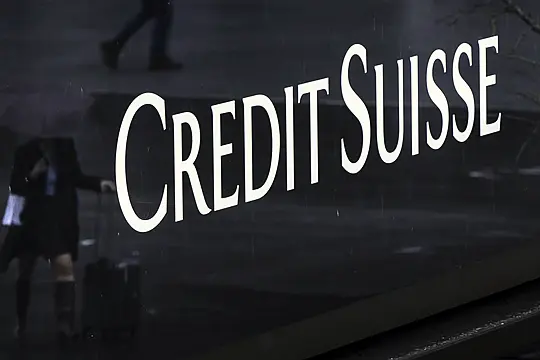US lawmakers said Credit Suisse kept allowing wealthy Americans to dodge tax payments, finding after a two-year investigation that the embattled Swiss bank had violated a 2014 plea agreement for allowing tax evasion by its clients.
The Senate Finance Committee pointed to a possible ongoing criminal conspiracy tied to nearly 100 million US dollars (£81 million) in secret offshore accounts belonging to a family of American taxpayers that the bank failed to disclose.
It also said the bank helped a US businessman conceal more than 220 million US dollars (£179 million) in offshore accounts from the Internal Revenue Service (IRS).
Credit Suisse revealed that it had found 23 accounts each worth at least 20 million US dollars (£16 million) that had not been declared to tax authorities, according to the committee, who said its findings showed that more than 700 million US dollars (£568 million) was concealed in violation of Credit Suisse’s nine-year-old plea deal with the US justice department.
“Credit Suisse got a discount on the penalty it faced in 2014 for enabling tax evasion because bank executives swore up and down they’d get out of the business of defrauding the United States,” Senator Ron Wyden, the Democratic chairman of the committee, said.
“This investigation shows Credit Suisse did not make good on that promise, and the bank’s pending acquisition does not wipe the slate clean,” he added.
The Swiss government pressed for a 3.25 billion US dollars (£2.63 billion) takeover of long-troubled Credit Suisse by its rival bank UBS this month amid turmoil in the global financial system.
The collapse of two US banks unleashed fears that hit Switzerland’s second-largest bank, whose shares tanked and whose customers pulled their money.
The Senate findings pose new problems for UBS as it tries to merge operations into one Swiss megabank, coming the same day that UBS named a new chief executive to help push through the takeover.
Credit Suisse, whose years-long troubles range from hedge fund losses to fines for failing to prevent money laundering by a Bulgarian cocaine ring, said it “does not tolerate tax evasion” and insisted that the Senate report described “legacy issues” — some dating to a decade ago — that had been addressed since.
“We have implemented extensive enhancements since then to root out individuals who seek to conceal assets from tax authorities,” the Zurich-based bank said.
“Our clear policy is to close undeclared accounts when identified and to discipline any employee who fails to comply with bank policy or falls short of Credit Suisse’s standards of conduct,” it said.
The Senate report noted Credit Suisse’s co-operation with the investigation, including having hired new leaders.
The Swiss lender paid a discounted fine of 1.3 billion US dollars (£1.1 billion) to the US justice department after pleading guilty in 2014 to conspiracy to aid and assist US taxpayers in filing false income tax returns and other documents with the IRS.
The bank acknowledged “knowingly and wilfully” helping thousands of Americans open accounts that were not declared to tax authorities and concealing offshore assets.
It avoided criminal charges in exchange for agreeing to report undeclared accounts and provide other information to US officials.







